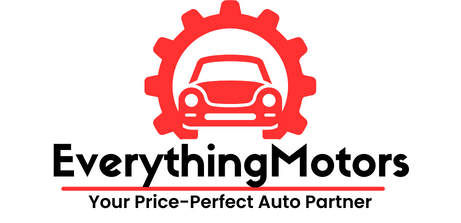Is your vehicle giving you trouble? If you’re facing car issues, you’re probably on the lookout for a trustworthy repair shop nearby. In fact, studies show that nearly 60% of car owners in encounter challenges in finding reliable auto services. It’s a great idea to know where to compare prices and services before you actually need a repair. Being prepared means you can make the best decision and avoid any unnecessary delays or stress when your car needs attention. In this article, we will walk you through the most effective ways to compare car repair prices, ensuring that you save both time and money when it comes to vehicle repairs.
Why Should You Compare Car Repair Prices?
When your car breaks down or needs servicing, you want to ensure that you’re getting the best possible price for the repairs. Car repair prices can vary significantly between different repair shops. Factors such as labor costs, the type of parts used, and shop location can all contribute to price differences. By comparing prices, you ensure that you’re not overpaying, and you also get the peace of mind knowing that you’re dealing with a reliable shop.
Furthermore, comparing prices can help you find specialized services for your car’s specific needs. For instance, some shops may specialize in foreign brands, while others might have better experience with local makes. This comparison allows you to make informed decisions and avoid unnecessary costs.
The Best Ways to Compare Car Repair Prices in Your Area
1. Use Online Platforms Like Everything Motors
One of the easiest ways to compare car repair prices is through online platforms like Everything Motors. Everything Motors provides a comprehensive service that lets car owners compare prices for various repair services in their area. You can check the cost of car repairs like brake replacements, engine diagnostics, or oil changes all in one place.
Additionally, Everything Motors offers a wide range of other services such as vehicle parts price checking, driver outsourcing, license renewals, and helping people register their vehicles. This makes it a one-stop solution for many car-related needs, and it ensures that you’re getting competitive prices from trusted providers. The convenience of using such platforms allows you to make price comparisons in real-time without visiting each shop physically.
2. Check Customer Reviews and Ratings
Online reviews are a powerful tool when comparing car repair prices. Websites like Google Reviews, Yelp, and Facebook allow customers to leave feedback based on their personal experiences with local repair shops. These reviews can give you a good indication of the shop’s reputation, the quality of service, and the general pricing trends.
Look for shops with a high number of positive reviews. These reviews can give you insights into the pricing practices of the shop. Often, customers will mention the total cost of repairs or the specific prices they paid, which allows you to gauge whether the shop is charging fair prices. Additionally, pay attention to how the shop responds to negative reviews, as this can give you a sense of their customer service quality.
3. Ask Friends, Family, and Colleagues for Recommendations
Word-of-mouth recommendations are invaluable when searching for reliable car repair shops. Your friends, family, or colleagues who have previously had car repairs done can offer first-hand experience and recommend shops that provide good service at reasonable prices.
If you’re unsure where to start, consider posting on local social media groups or community platforms. Asking for recommendations within your network can help you narrow down your options to shops that others have trusted with their vehicles. This personal referral process often leads to finding reputable repair shops that may not be heavily advertised but offer excellent service.
4. Get Multiple Estimates from Different Shops
Once you have a list of potential repair shops, the next step is to get estimates from several of them. Contact each shop and describe the repair work needed. Ask for a detailed breakdown of the costs, including parts, labor, and any additional fees.
Having multiple estimates will allow you to compare prices across different shops. It’s essential to be as specific as possible when describing the issue so that the estimates are accurate. Some shops may offer lower prices but cut corners in terms of service, so make sure to ask questions about the quality of the parts used and the technician’s qualifications.
5. Look for Specialty Shops for Specific Repairs
If you own a specific make or model of car, you may want to consider looking for repair shops that specialize in your vehicle’s brand. Specialty shops often have more experience with the particular needs of your car, which can lead to better results at a lower cost in the long run.
For example, if you drive a Toyota, you may find a Toyota-specific repair shop that offers cheaper and more efficient repairs due to their deep knowledge of the brand’s parts and systems. These shops may also have access to OEM (original equipment manufacturer) parts, which can improve the quality and longevity of your repairs.
6. Verify the Shop’s Certifications and Qualifications
One of the most important factors in choosing a repair shop is the certification and qualifications of their technicians. Certification ensures that the technicians have the necessary skills and knowledge to work on your vehicle and use the right tools and equipment.
In Nigeria, many reputable repair shops also display their certifications proudly. Don’t hesitate to ask the shop about their certifications and qualifications before agreeing to any repairs. This helps ensure that your car is in good hands and that the repairs will be done correctly.
7. Ask About Warranties on Repairs
A trustworthy repair shop should offer a warranty on the repairs they carry out. Warranties provide you with peace of mind, knowing that if the repair doesn’t hold up, the shop will fix it at no extra charge. When comparing prices, always ask about warranty coverage and the length of the warranty. Be cautious of shops that don’t offer warranties, as this could be an indicator of poor quality or subpar parts.
8. Look for Transparent Pricing
Some repair shops may offer low estimates but hide additional fees that only become apparent once the repair is complete. To avoid surprises, look for shops that provide transparent pricing. A reliable shop will provide you with a clear, written estimate that breaks down the costs of parts, labor, and any additional fees.
You can also check for price transparency on online platforms like Everything Motors, where you can compare the prices of different repair services before committing to a particular shop.
9. Don’t Choose Based on Price Alone
While price is an important factor, it shouldn’t be the sole basis for your decision. The cheapest repair shop isn’t always the best choice. Low-cost repairs may be indicative of poor service or the use of substandard parts, which could lead to recurring issues with your vehicle.
It’s crucial to balance cost with quality. Opt for a shop that offers fair pricing while ensuring that the repairs are done professionally and with high-quality parts.
10. Check the Reputation of the Shop
The reputation of a repair shop speaks volumes about its quality of service. Shops that have been in business for a long time and have developed a solid customer base tend to offer reliable and efficient services. Take time to check the shop’s reputation by reading online reviews and asking for referrals.
You can also visit the shop in person to assess its cleanliness and professionalism. A well-maintained shop with friendly staff is more likely to provide quality service than a disorganized and poorly managed one.
11. Test the Shop with Small Repairs
If you’re unsure about a particular repair shop, consider testing them with a small, non-critical repair, such as an oil change or tire rotation. This will allow you to evaluate the shop’s service quality, communication, and pricing before committing to more significant repairs.
Testing a shop with minor repairs also gives you an opportunity to assess how they interact with customers and whether they can deliver timely, high-quality service.
12. Consider Location and Convenience
When comparing car repair prices, convenience is another crucial factor to consider. The location of the repair shop can significantly impact the overall cost, as shops located in busy or upscale areas may charge more for their services due to higher overhead costs.
Look for a shop that is conveniently located near your home or workplace. You’ll also want a shop that offers flexible working hours, allowing you to drop off and pick up your car at a time that fits your schedule.
Conclusion
Comparing car repair prices in your area doesn’t have to be overwhelming. By using platforms like Everything Motors, checking reviews, getting multiple estimates, and considering factors like certifications, warranties, and reputation, you can find the best repair shop for your needs. Remember, while price is an essential factor, it’s equally important to ensure that the shop provides quality service and reliable repairs.
By following the steps outlined above, you can save money and ensure that your car gets the best possible care. Whether you’re looking for vehicle parts price checking, driver outsourcing, or license renewals, Everything Motors offers a range of services that can make the process even easier. Always take your time to compare and choose wisely, and your car will thank you for it.


